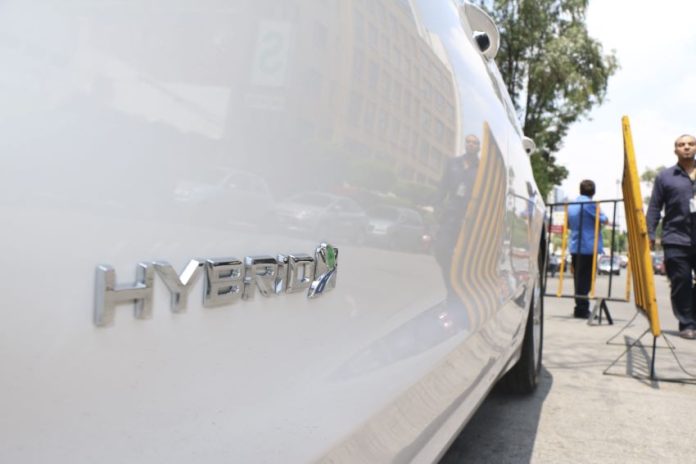Electric and hybrid vehicle sales in Mexico increased 58% in February compared to last year, marking 17 months of consecutive growth, according to figures from the national statistics agency INEGI.
With 7,248 units sold, vehicles with some form of electrification (including hybrids, electric vehicles and PHEVs) accounted for 6.4% of total light vehicle sales in Mexico in February, which totaled 113,258 units. This figure was a record market share for electric vehicles for that month. However, it is lower than the 6.6% of sales recorded in January and the 7% of sales recorded in December.

Plug-in hybrid (PHEV) vehicles saw the biggest sales growth in February, with a 58.4% increase (464 cars). Meanwhile, the hybrid segment recorded a 43.8% increase in sales volume, reaching 5,379 units.
It’s important to note that these figures do not include some cars sold by Chinese brands that have recently begun sales in Mexico and that sell a range of hybrid and electric vehicles. Some of these brands include BYD, Great Wall Motors (GWM), GAC, SEV and Geely, which have not reported their numbers to the government.
While INEGI report didn’t mention the number of cars sold by brand, Toyota has said that it is the market leader, due to its broad offer of hybrids.
The online Mexican car magazine Motorpasión has confirmed that the best-selling hybrid car in Mexico is a Toyota — the Toyota Prius, with 3,694 units. It is followed by the Chinese JAC E10X, with 1,862 cars sold; the Chevrolet Bolt EUV, with 146 units sold; and the Ford Mustang Mach-E, 325, with 66 cars sold.
In Mexico, hybrid and electric vehicles qualify for certain tax benefits, such as exemption from vehicle ownership tax. In Mexico City, they’re also allowed to drive even when traffic restrictions are in place to mitigate poor air quality.
However, among the 10 top-selling cars in Mexico, none is an electric or hybrid vehicle.
Price is likely one of the reasons Mexicans still prefer gasoline-powered cars. According to the newspaper El País, there is a 200,000-peso (US $11,874) difference between the cheapest hybrid and the cheapest conventional car available in Mexico.
Another reason, distributors say, is lack of infrastructure for EVs. At the end of 2023, the National Auto Parts Industry (INA) and the Mexican Transport Institute (IMT) said that there were 1,189 electric charging stations in the country, with a total of 2,089 chargers.
As of last year, there were around 13,000 gas stations nationwide.
With reports from El Economista, El País and Infobae
